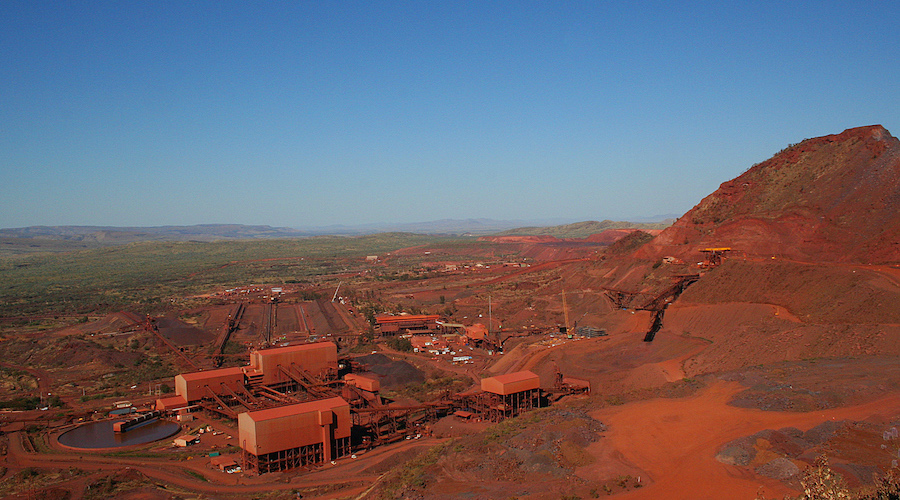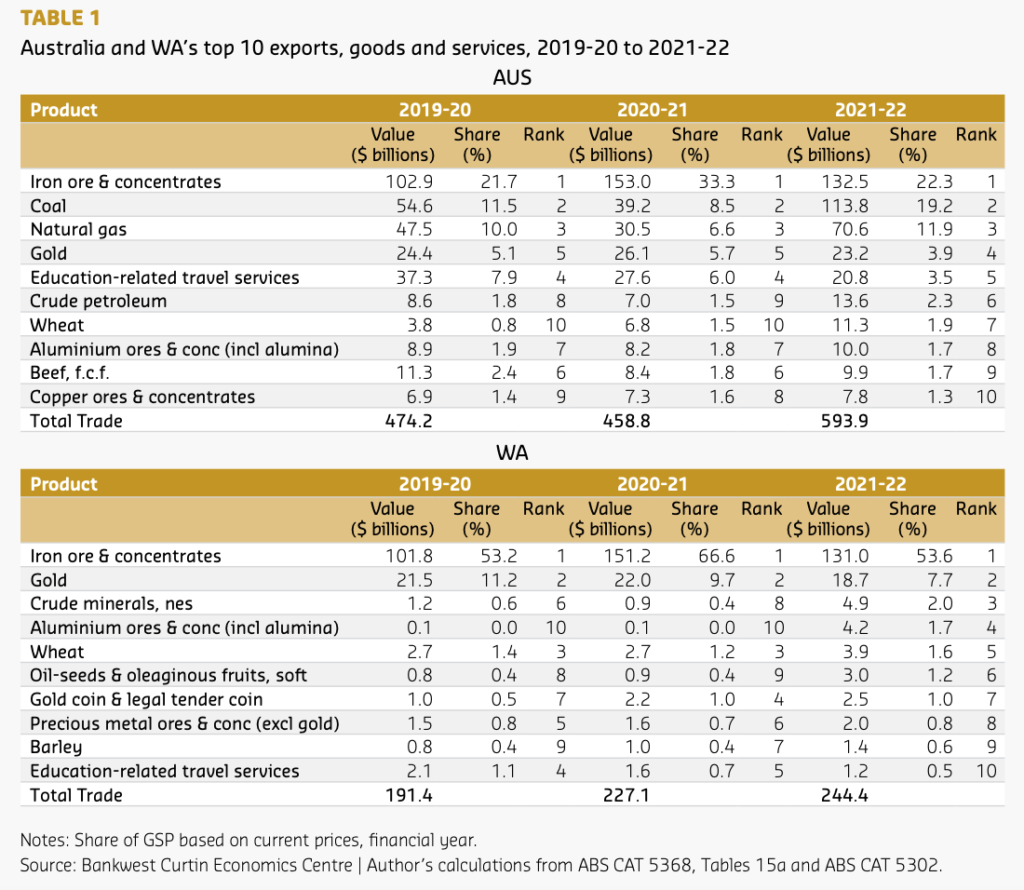Western Australia’s mining sector was key for post-covid-19 economic recovery – report

International trade and a thriving mining and resources sector were crucial for the recovery of Western Australia’s economy following the covid-19 pandemic, a new report by the Bankwest Curtin Economics Centre at Curtin University states.
The study also found that diversification is very important to ensuring the state seizes emerging trade opportunities, including those arising from a global shift toward decarbonization.
According to the report, WA’s economic resilience to the pandemic has been the envy of other states, with goods exports in 2021-22 accounting for 59% of WA’s economy as measured by Gross State Product (GSP), compared to national exports which contributed 23% to the Australian economy.
“The relative scale of WA’s export sector emphasizes just how much the state benefits from – and depends on – its economic relationships with trading partners,” report co-author and Bankwest Curtin Economics Centre Director, Alan Duncan, said in a media statement. “The WA economy benefits from natural endowments, product specialization and market integration as well as economies of scale, and its resilience through the covid pandemic owes much to border protections that allowed mine sites and ports to maintain production cycles.”
The document also found the free trade agreements (FTAs) Australia has signed with other countries have led to huge financial gains for Australian exports. FTAs with China, Japan, South Korea and Thailand led to estimated gains of A$472 billion for Australian exports since each trade agreement was enacted.
However, the dossier also notes a growing level of protectionism among a number of trading partners and preferential domestic economic support for key industry sectors, which poses risks to open economies like Australia, and particularly export-oriented states such as Western Australia.
“This emphasizes the importance of the government’s ongoing work to deepen relationships with key partners and secure free trade agreements that are to our mutual benefit,” Duncan said.
The dossier also suggests businesses need to be export ready, and continuously looking towards new markets and trade opportunities.
“Together with the enablers provided by the government, businesses must look to upskill workers and technological capabilities to ensure that production processes and products are positioned to be at the forefront of global innovation,” the paper reads.

Going green
The report highlights the future opportunities for Australia – and especially for Western Australia – that stem from the global decarbonization agenda.
Based on Bankwest Curtin Economics Centre’s Green Economic Complexity Index, WA is well positioned in green products capability – products that are identified as instrumental in the transition to net zero-carbon emissions.
“WA has a far stronger trade profile in products connected to environmental improvements than the equivalent national profile. WA’s green exports increased from just below 50% of total exports in 2015 to more than 65% by 2021. This translates to a more than threefold increase in value terms from $51 billion in 2015 to $157 billion by 2021,” the study reads. “WA has a bright future in green trade and growth and is well positioned to remain at the forefront of Australian trade in a decarbonized world. However, it is important that the required policy and infrastructure supports are in place to ensure that the benefits of the global green transition are maximized by the state.”
For report co-author Daniel Kiely, this week’s announcement by the state government of $148 million under the Investment Attraction Fund was a good step in moving forward the state’s diversification agenda.
“The scope of the 40 projects announced under the Investment Attraction Fund – including tourism, renewables and regional development – show the state government is putting the meat on the bones of their diversification strategy, which, as we’ve said in this report, is essential in moving beyond WA’s heavy reliance on the resource sector for its continued economic success,” Kiely said.
More News
Contract worker dies at Rio Tinto mine in Guinea
Last August, a contract worker died in an incident at the same mine.
February 15, 2026 | 09:20 am
{{ commodity.name }}
{{ post.title }}
{{ post.date }}




Comments